 More Days at the Morisaki Bookshop (Days at the Morisaki Bookshop, #2) by Satoshi Yagisawa, Eric Ozawa
More Days at the Morisaki Bookshop (Days at the Morisaki Bookshop, #2) by Satoshi Yagisawa, Eric Ozawa Narrator: Catherine Ho
Format: audiobook, eARC
Source: purchased from Amazon, supplied by publisher via Edelweiss
Formats available: paperback, large print, ebook, audiobook
Genres: books and reading, literary fiction, relationship fiction, world literature
Series: Days at the Morisaki Bookshop #2
Pages: 176
Length: 5 hours and 21 minutes
Published by Harper Perennial, HarperAudio on July 2, 2024
Purchasing Info: Author's Website, Publisher's Website, Amazon, Barnes & Noble, Kobo, Bookshop.org, Better World Books
Goodreads
In this charming and emotionally resonant follow up to the internationally bestselling Days at the Morisaki Bookshop, Satoshi Yagisawa paints a poignant and thoughtful portrait of life, love, and how much books and bookstores mean to the people who love them.
Set again in the beloved Japanese bookshop and nearby coffee shop in the Jimbocho neighborhood of Toyko, More Days at the Morisaki Bookshop deepens the relationship between Takako, her uncle Satoru , and the people in their lives. A new cast of heartwarming regulars have appeared in the shop, including an old man who wears the same ragged mouse-colored sweater and another who collects books solely for the official stamps with the author’s personal seal.
Satoshi Yagisawa illuminates the everyday relationships between people that are forged and grown through a shared love of books. Characters leave and return, fall in and out of love, and some eventually die. As time passes, Satoru, with Takako’s help, must choose whether to keep the bookshop open or shutter its doors forever. Making the decision will take uncle and niece on an emotional journey back to their family’s roots and remind them again what a bookstore can mean to an individual, a neighborhood, and a whole culture.
My Review:
At the end of the first book, Days at the Morisaki Bookshop, it seems as if life is on the upswing for first-person narrator Takako, her eccentric uncle Satoru, and his used bookshop in the Jimbocho neighborhood of Tokyo, a place that is positively chock full of used book stores.
As this second book opens, life seems to be going well for Takoko. She’s moving forward with her life, has a job that she enjoys, a solid and happy and solidly happy romantic relationship, her uncle is happily complaining – which is his way – her aunt seems to have made peace with her uncle and their relationship seems stable and happy.
Even the bookshop seems to be doing well.
Howsomever, just as the first book started out as sad fluff, with Takoko in the depths of depression and eventually working her way out through working at the bookshop, rekindling her childhood closeness with her uncle, rediscovering the joys of reading and slowly becoming involved with the life of the neighborhood, these “more days” at the bookshop transit the path in the other direction.
At the beginning, all seems to be well. But as Takoko observes each time she returns to the bookshop to spend time and help out – the reality is that happiness is slipping out from under them.
Some parts of the various situations can be fixed – but not all of them. And not the saddest of all.
 Escape Rating A-: I picked up More Days at the Morisaki Bookshop because, having fallen in love with the first book, Days at the Morisaki Bookshop, I wanted more, well, days at the Morisaki Bookshop.
Escape Rating A-: I picked up More Days at the Morisaki Bookshop because, having fallen in love with the first book, Days at the Morisaki Bookshop, I wanted more, well, days at the Morisaki Bookshop.
And that’s exactly what I got – and it was beautiful. I’m very glad that I read it – or rather that I gave in to temptation and listened to Catherine Ho as the voice of Takako again because she does an excellent job of embodying the character.
Like the previous book, this is not a story of great doings and big happenings. It’s a quiet story, a book of slices of life, specifically the lives of Takako, her family, her friends, and the Morisaki Bookshop which so much of those lives revolve around.
But, and this is a bit of a trigger warning, the progression of this story is the opposite of the first. It starts high and ends low – even though the epilogue does a good job of letting the reader know that life moves on – even from the depths of grief.
Howsomever, the depths of that grief are very deep indeed. Especially in the excellent audio recording, where it feels as if it’s Takako’s voice telling you just how heartbroken so many of the characters are. It’s very effective, and very affecting. Readers who are already grieving someone close to their hearts will find that part of the story gut-wrenching, cathartic, or both – as this reader certainly did.
 So maybe don’t listen to that part while you’re driving because the urge to cry right along with Takako is pretty much irresistible.
So maybe don’t listen to that part while you’re driving because the urge to cry right along with Takako is pretty much irresistible.
That being said, the whole thing is lovely and charming and filled to the brim with the joy of books and reading and the people who love both – just as the first book was. I’m as happy I read this second book as I was the first – even if it did leave me a bit weepy.
This series, along with Before the Coffee Gets Cold, The Kamogawa Food Detectives, What You are Looking For Is In the Library, The Dallergut Dream Department Store and the upcoming We’ll Prescribe You a Cat are part of a marvelously charming and extremely cozy trend of magical – sometimes with real magic – comfort reads and I’m enjoying it tremendously.
If you’re looking for some cozy, comforting reads, you might want to snuggle up with some of these books too!

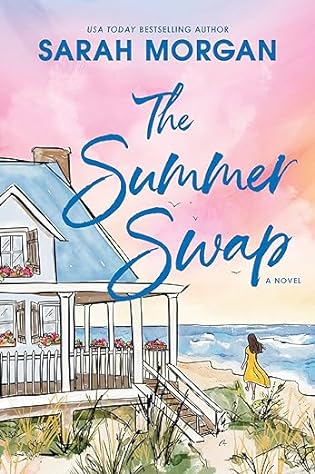 The Summer Swap by
The Summer Swap by  Escape Rating A-: I picked this up because I absolutely fell in love with
Escape Rating A-: I picked this up because I absolutely fell in love with  I did figure out Cecilia’s big secret fairly early on – but there was still an impact in seeing it revealed to the others and the way in which it was revealed. At the same time I was never quite sure exactly what the stumbling block was in Lily’s romance but was happy to see her happy all the same. And I was thrilled to see Cecilia get her own second-time-around HEA because she’d earned it, deserved it and was utterly entitled to it. I left the story still not sure how to characterize Kristen’s progress – but on the other hand, I’m not sure she is yet either.
I did figure out Cecilia’s big secret fairly early on – but there was still an impact in seeing it revealed to the others and the way in which it was revealed. At the same time I was never quite sure exactly what the stumbling block was in Lily’s romance but was happy to see her happy all the same. And I was thrilled to see Cecilia get her own second-time-around HEA because she’d earned it, deserved it and was utterly entitled to it. I left the story still not sure how to characterize Kristen’s progress – but on the other hand, I’m not sure she is yet either. Funny Story by
Funny Story by 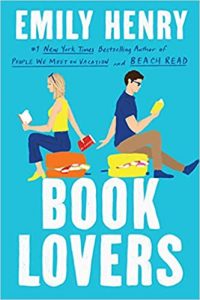 Escape Rating A: I started out listening to this one, and that’s probably what got me over the hump of the early chapters. This is one of those stories that, of necessity, has a very hard start. We meet Daphne just after very nearly the entire life she had planned crashed and burned. She’s wallowing in a whole lot of angst and regret and self-recrimination, nearly buried by the weight of her emotional baggage piling up all around her. Listening to the excellent narrator makes the listener feel like they are literally inside Daphne’s mostly despairing head and it’s a realistically well-portrayed terrible place to be.
Escape Rating A: I started out listening to this one, and that’s probably what got me over the hump of the early chapters. This is one of those stories that, of necessity, has a very hard start. We meet Daphne just after very nearly the entire life she had planned crashed and burned. She’s wallowing in a whole lot of angst and regret and self-recrimination, nearly buried by the weight of her emotional baggage piling up all around her. Listening to the excellent narrator makes the listener feel like they are literally inside Daphne’s mostly despairing head and it’s a realistically well-portrayed terrible place to be.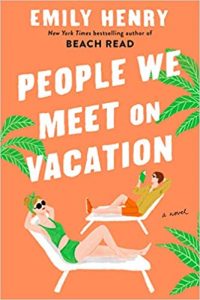 That Peter ultimately gets the shaft all the way around turned out to be merely the icing on a very tasty cake of a book – or perhaps that should be the slathering of cheese and jalapenos on a fresh, hot serving of Petoskey fries. The part that makes a good thing just that much better.
That Peter ultimately gets the shaft all the way around turned out to be merely the icing on a very tasty cake of a book – or perhaps that should be the slathering of cheese and jalapenos on a fresh, hot serving of Petoskey fries. The part that makes a good thing just that much better.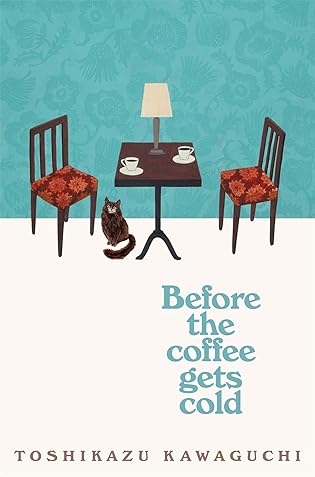 Before the Coffee Gets Cold (Before the Coffee Gets Cold, #1) by
Before the Coffee Gets Cold (Before the Coffee Gets Cold, #1) by  Escape Rating A-: I picked this up – in fact I bought the whole series so far – because I’ve enjoyed several books recently that used this one as a pattern;
Escape Rating A-: I picked this up – in fact I bought the whole series so far – because I’ve enjoyed several books recently that used this one as a pattern; 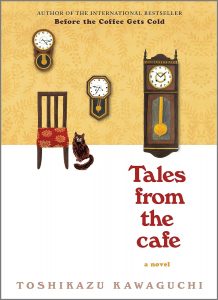 What makes the collection as a whole work is that the remaining stories move the time travel further back and forwards in time, but step by step – or story by story – closer to the cafe’s proprietors and from that sweet possibility of a happy ending to something much closer to the bitterness of the coffee they serve. With just a hint of sugar to help the poignancy to go down.
What makes the collection as a whole work is that the remaining stories move the time travel further back and forwards in time, but step by step – or story by story – closer to the cafe’s proprietors and from that sweet possibility of a happy ending to something much closer to the bitterness of the coffee they serve. With just a hint of sugar to help the poignancy to go down.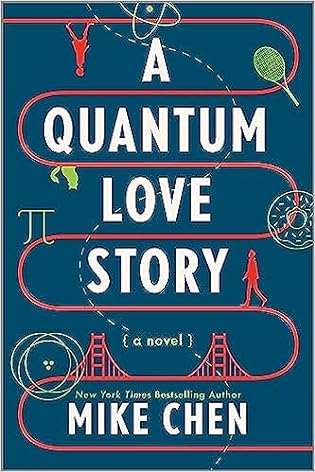 A Quantum Love Story by
A Quantum Love Story by 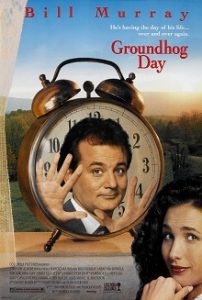 Escape Rating B+: If the blurb or the description above are making you think of the movie
Escape Rating B+: If the blurb or the description above are making you think of the movie 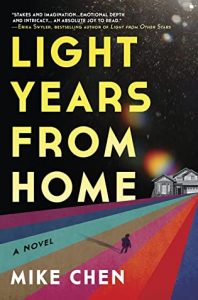 But the chasing down of just how many different time loop stories this one brought to mind kept me from being as invested in Carter and Mariana’s problem solving through their loops, although the emotional journey they took did hold my interest even as it briefly looked like it was heading for
But the chasing down of just how many different time loop stories this one brought to mind kept me from being as invested in Carter and Mariana’s problem solving through their loops, although the emotional journey they took did hold my interest even as it briefly looked like it was heading for 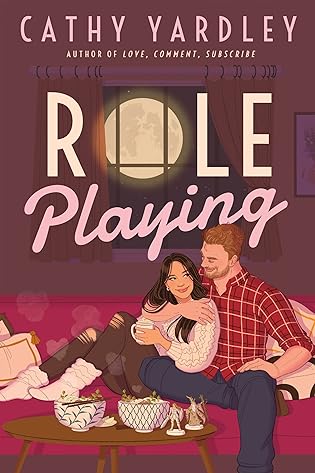 Role Playing by
Role Playing by 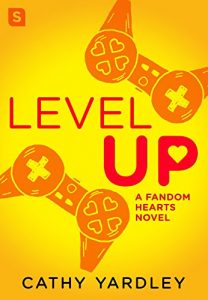 Escape Rating A: I picked this book out of the virtually towering TBR pile for two reasons. One, I loved the author’s
Escape Rating A: I picked this book out of the virtually towering TBR pile for two reasons. One, I loved the author’s 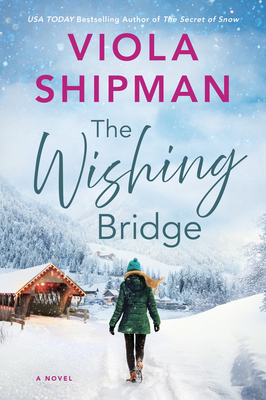 The Wishing Bridge by
The Wishing Bridge by 
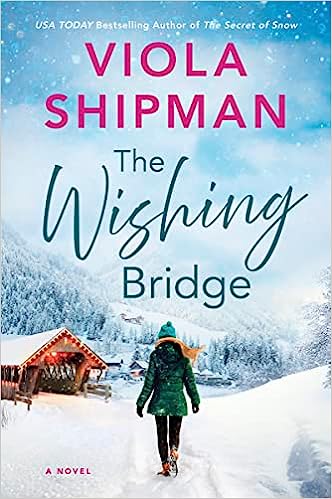 The Wishing Bridge by
The Wishing Bridge by 

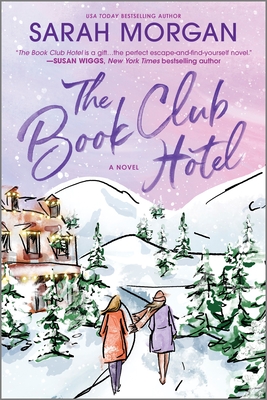 The Book Club Hotel by
The Book Club Hotel by  Escape Rating B+: I picked this up for two reasons, and I’m not sure which is first or second. The whole concept of a vacation just to read and spend time with lifelong friends and read, (did I mention read?) and relax and oh, yes, read – sounds a bit like heaven. And the setting of The Book Club Hotel seemed particularly idyllic, including a brief trip to a ‘Winter Wonderland’ without having to stick around for the next several months of freezing temperatures, gray snow and mud. (Been there, done that, the t-shirts are all long-sleeved and insulated.)
Escape Rating B+: I picked this up for two reasons, and I’m not sure which is first or second. The whole concept of a vacation just to read and spend time with lifelong friends and read, (did I mention read?) and relax and oh, yes, read – sounds a bit like heaven. And the setting of The Book Club Hotel seemed particularly idyllic, including a brief trip to a ‘Winter Wonderland’ without having to stick around for the next several months of freezing temperatures, gray snow and mud. (Been there, done that, the t-shirts are all long-sleeved and insulated.)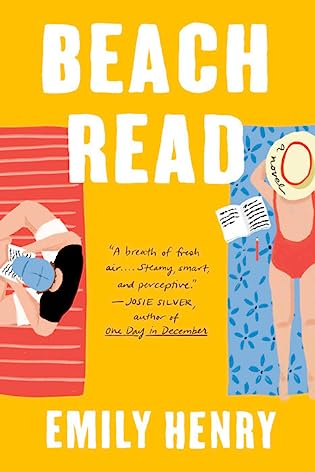 Beach Read by
Beach Read by